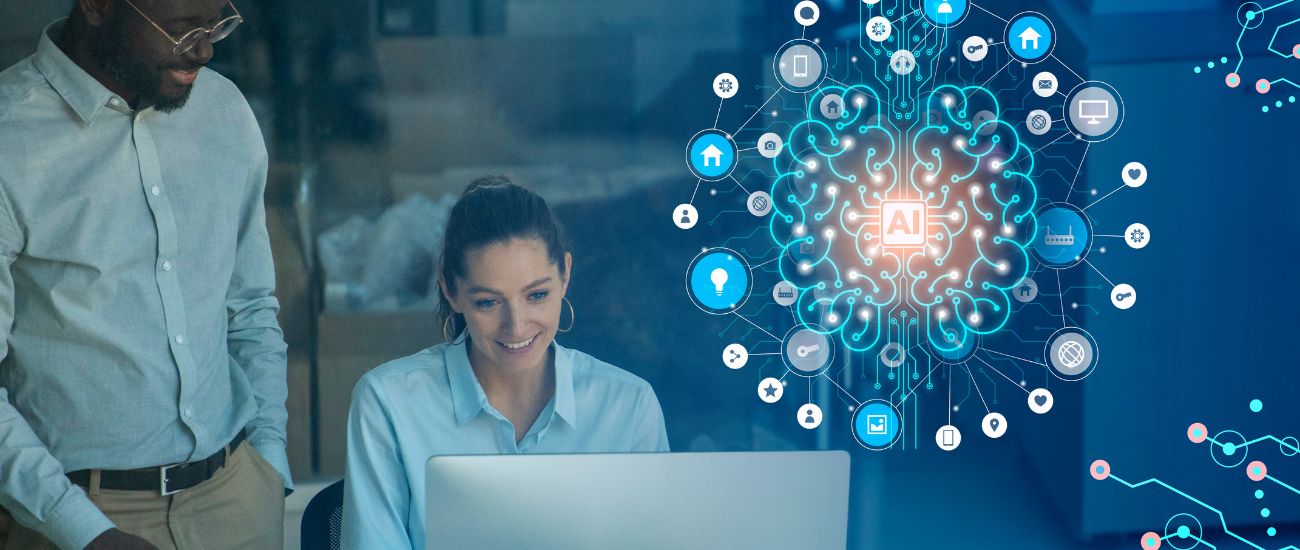How AI is Transforming the IT Industry: Benefits and Potential Dangers
Artificial Intelligence (AI) is at the forefront of technological innovation, transforming various industries, and the IT sector is no exception. AI's impact on the IT industry is profound, offering unprecedented efficiencies, new capabilities, and transformative solutions. However, like any powerful tool, AI also comes with potential risks that need careful consideration. This article explores how AI is changing the IT industry, the benefits it brings, and the potential dangers that users and businesses should be aware of.
The Role of AI in the IT Industry
AI is being integrated into numerous IT applications, from enhancing cybersecurity to automating complex tasks. Its ability to analyze vast amounts of data and learn from patterns makes it a valuable asset in various IT functions.
-
Automation and Efficiency: AI-powered automation tools are streamlining routine and repetitive tasks, freeing up IT professionals to focus on more strategic initiatives. This includes automating data management, system monitoring, and even coding, leading to faster and more efficient workflows.
-
Enhanced Cybersecurity: AI's capacity to analyze and detect patterns in data is crucial for cybersecurity. AI can identify unusual patterns or anomalies that might indicate a security breach, enabling quicker responses to potential threats. This proactive approach helps in preventing attacks and minimizing damage.
-
Improved Decision-Making: AI systems can analyze complex datasets and provide insights that help businesses make informed decisions. This includes everything from predicting market trends to optimizing resource allocation. In IT, AI can help in capacity planning, risk management, and more.
-
Natural Language Processing (NLP): AI-driven NLP technologies are enhancing customer service and support. Chatbots and virtual assistants, powered by AI, can handle customer inquiries, provide support, and even troubleshoot issues, improving customer experience and operational efficiency.
-
Predictive Maintenance: AI can predict when IT systems and infrastructure are likely to fail, allowing for proactive maintenance. This reduces downtime and ensures that systems are always running at optimal efficiency.
Benefits of AI in the IT Industry
- Cost Reduction: Automation and predictive maintenance reduce the need for manual labor and minimize downtime, leading to significant cost savings.
- Scalability: AI solutions can be scaled easily, making them suitable for businesses of all sizes.
- Enhanced Security: AI can detect and respond to threats more quickly and accurately than traditional methods, providing better protection against cyberattacks.
- Data-Driven Insights: AI helps businesses make better decisions by providing insights from large datasets that would be impossible to analyze manually.
Potential Dangers and Ethical Considerations
While AI offers numerous benefits, it also presents certain risks and ethical challenges:
-
Job Displacement: Automation driven by AI can lead to job displacement as machines take over tasks traditionally performed by humans. This necessitates re-skilling and upskilling for affected workers.
-
Bias and Fairness: AI systems are only as good as the data they are trained on. If the data contains biases, the AI system can perpetuate these biases, leading to unfair or discriminatory outcomes.
-
Security Risks: While AI can enhance cybersecurity, it can also be exploited by malicious actors. For instance, AI can be used to develop sophisticated phishing attacks or malware that is difficult to detect.
-
Privacy Concerns: AI systems often require large amounts of data, raising concerns about data privacy and the potential for misuse of personal information.
-
Dependence on AI: Over-reliance on AI can lead to a lack of critical human oversight. It's essential to maintain a balance between automation and human intervention, particularly in critical decision-making areas.
Conclusion
AI is undeniably transforming the IT industry, offering significant benefits in terms of efficiency, security, and decision-making. However, businesses and individuals must also be aware of the potential risks associated with AI. By understanding these risks and implementing appropriate safeguards, we can harness the power of AI to drive innovation while minimizing negative impacts. As AI continues to evolve, it will be crucial to balance technological advancements with ethical considerations, ensuring a future where technology serves humanity's best interests.

